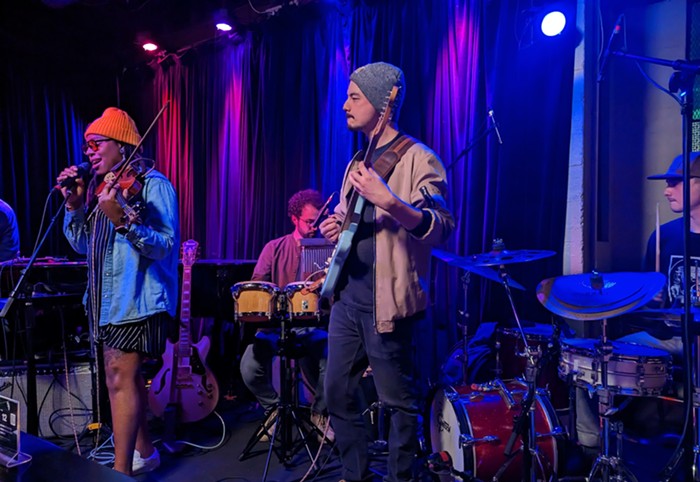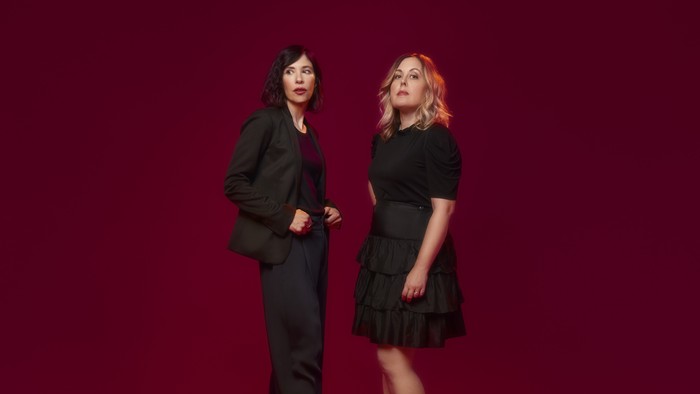"In its third decade of existence, hiphop's influence is pervasive. While there are signs of weakness--its overwhelming dependence on major corporations for funding, its occasionally gleeful celebration of anti-social tendencies--it shows no signs of heading for the respirator anytime soon." --Nelson George, hiphop america
Galleries won't show your paintings? Turn your neighborhood into a gallery with spray paint. Clubs not playing music you like? Throw your own parties, or carry a boombox and dance wherever you want. Radio overrun with the empty calories of disco? Invent a musical genre.
The Bronx in the early 1970s was ground zero for the invention of hiphop and the spark that set it off can be traced back to one event. That event was Clive Campbell moving to New York from Jamaica and bringing with him the DJing style of the islands, called "toasting"--talking over records to engage the partygoers. "Toasting" was the predecessor of rapping. In the Bronx, Campbell would become DJ Kool Herc and eventually carry the accolade "The Father of hiphop."
Too busy inventing the art form of hiphop DJing to handle the toasting duties, Herc passed the mic to his "Herculoids," MCs Coke La Rock and Clark Kent. As the MCs became more popular for their banter, they needed more time to talk without the vocals coming in on the records. The whole thing morphed into Herc playing breakbeats (the funkier, stripped-down sections of records with no vocals) repeatedly using two copies of a record on two turntables, while La Rock and Kent did their thing. Here was the birth of rapping.
The Zulu Nation sets hiphop's official birthday as November 12th, 1974. The Zulu Nation was founded by Afrika Bambaataa (The Godfather of hiphop Culture) to unify the gang-ridden Bronx of the '70s. Bambaataa brought together the emerging four elements of hiphop culture and provided the inspiration for inner-city kids to reclaim the production and distribution of their own creative expression. Nobody was going to cater to the wants of the inner-city poor, so whatever they wanted, they had to make themselves. In those days there were no major label record contracts, arena tours, or A&R men banging on doors offering a fast track to the big time.
In the 20-something years since DIY pioneers like The Herculoids, Grandmaster Flash and the Furious Five, Grand Wizard Theodore, The Cold Crush Brothers, and The Treacherous Three laid the groundwork, hiphop culture has evolved at a blinding pace, both creatively and as an enterprise. Sadly, in 2001, a lot of the time hiphop is more about bling-bling and "bitches" than creativity and community building.
Unobscured by the glare of the gold-ensconced teeth, wrists, and necks of commercial rap is the fact that hiphop began on the streets, with no concern for whether the mainstream gave a damn. And while hiphop's commercial success is faulted with diluting the form, it can not be denied that the music's popularity helped establish a thriving underground. Exposure by national radio and MTV helped introduce kids to an aesthetic that they might not otherwise be exposed to. The trickle-down effect, therefore, helped underground hiphop become a thriving entity once again, one establishing itself even in Portland.
While not even a footnote in the history of rap, Portland is home to a couple of artists who are hiphopping the old-school way, by doing it themselves.
*onear and Umar Bach write, record, and distribute their music here in Portland. Both hawk their wares on the street. I got Umar's CD on Hawthorne one day when he walked up to me and started freestyling on the spot. *onear sells homemade cassettes on the street, as well as through the Groundswell Café on Alberta.
Both artists' work have the production limitations of not having a studio, but the charm of photocopied CD labels and handwritten cassette inserts compensate for the low-budget sound. The real appeal of *onear and Umar Bach is their drive to make music and share it with the world. If you see these guys on the street, realize that they're carrying the torch of traditional hiphop. And this, in my opinion, is far more worthy of your attention than the commercial fluff put out there by major record labels, who care more about "moving units" than moving the crowd.


















